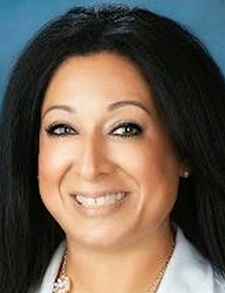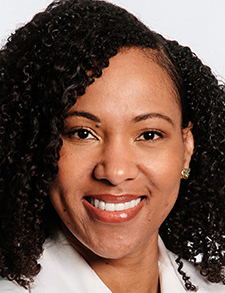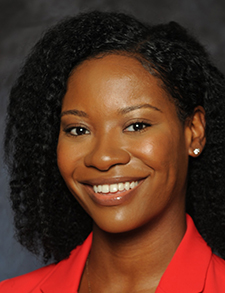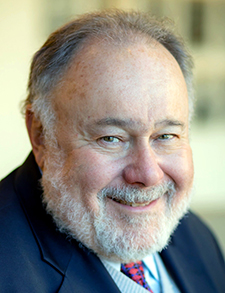Invest in yourself and the leader you want to be
SHM’s Leadership Academy was created to address an education gap common among physicians—leadership skills. These skills are not uniformly taught in medical school or post-graduate training programs but they’re vital to the success of aspiring hospital medicine leaders. In this article, we share insights on the value of Leadership Academy via shared experiences of participants and faculty.
Insight from a PA

Dr. Gadalla
Ilaria Gadalla, DMSc, PA-C, associate professor, interim assistant dean, physician assistant (PA) department chair, South University, West Palm Beach, Fla., and hospital medicine PA, at Treasure Coast Hospitalists, Stuart, Fla., attended SHM’s Leadership Academy a few years ago.
“I became interested in advocating for PAs in hospital medicine after accepting a new position,” Dr. Gadalla said. “There were different opinions about the competency level of advanced practice providers and how best to use us in hospital medicine. Leadership Academy helped me to better communicate, advocate, navigate, and network—especially with upper-level management. I now serve as an interim assistant dean and PA department chair at a university, helping manage several campuses across the nation.”
Aside from the new skills she acquired by attending Leadership Academy, Dr. Gadalla also appreciated the welcoming environment. “I was treated equally with physician participants. There was no bias. I was allowed to cultivate the same skills,” she said.
From participant to faculty

Dr. Kennedy
Kierstin Cates Kennedy, MD, MSHA, FACP, SFHM, clinical associate professor, interim chief medical officer, at the University of Alabama at Birmingham, Birmingham, Ala., experienced Leadership Academy from both sides of the lectern—participant and faculty. After a wonderful experience with her first course, Dr. Kennedy advocated for funds to be built into the budget in her division so that all leaders could participate. She attended a second course, and thereafter transitioned to course facilitator.
“The Strategic Essentials level gives you some perspective about what the executives in the C-suite are concerned about, and what their pressures are,” Dr. Kennedy said. “This was eye-opening. It helped me put our requests as frontline hospitalists into context.”
“In courses like Mastering Teamwork, you learn more about what goes into building effective teams and the role we play as leaders. Sometimes people don’t understand how little things like the way we speak and manage conflict can have an impact on long-term culture. If not done well, this can limit our ability to be effective as hospitalist groups,” she continued.
Dr. Kennedy also lauded the space the course provides for self-reflection and personal growth. “This is a dedicated block of time to invest in yourself—to think about what your strengths are, and where you have opportunities to grow. If you can just block off three to four days, you can get a ton of professional development information handed right to you. Also, this is a way to network outside your institution so when you come up for promotion, you have colleagues to ask for letters.”
As the interim chief medical officer, Dr. Kennedy plans to push for every hospitalist at the University of Alabama at Birmingham to participate in Leadership Academy. She said, “Some of the grumpiest leaders I know have returned from Leadership Academy and said ‘Wow—I needed that perspective.’ You realize that problems aren’t just specific to your group. They’re shared by hospitalists everywhere. You see how other institutions approach things and crowdsource information. Then, you bring that home and really innovate.”
Insight from a pediatric hospitalist

Dr. Lewis
Kheyandra D. Lewis, MD, MEd, assistant professor of pediatrics, Drexel University College of Medicine, associate program director of the pediatric residency program, and attending physician, section of hospital medicine at St. Christopher’s Hospital for Children in Philadelphia, shares her experience as a faculty presenter.
Like many of you, Dr. Lewis has participated in faculty development programs through her own institution. However, Leadership Academy offers additional benefits that local programs might not. She said, “SHM’s Leadership Academy allows you to grow your sphere of influence. It can be helpful to get perspectives of people outside your own institution since you can learn about other resources out there.”
Dr. Lewis also enjoyed the collegiality of the program. “It’s a nice experience since I work in a free-standing children’s hospital and don’t often get to collaborate with adult hospitalists.”
Insight from a leadership guru

Dr. Marcus
Leonard J. Marcus, PhD, the director of the program for health care negotiation and conflict resolution, and founding co-director of the National Preparedness Leadership Initiative, Harvard T.H. Chan School of Public Health and Harvard Kennedy School of Government, Cambridge, Mass., offered an expert perspective on why the Leadership Academy is so valuable to hospitalists, especially in the post-COVID-19 era. The theme of Dr. Marcus’s leadership instruction is Meta-Leadership—which is designed to provide the tools leaders need to act and direct others in emergency situations. It’s also the basis for Dr. Marcus’s and his colleagues’ book, “You’re It—Crisis, Change, and How to Lead When it Matters Most.”
Dr. Marcus said, “Often physicians will move into positions of leadership because they are the best practitioner in their division, but they don’t necessarily focus on building their leadership skills. So, they find themselves leading their group without the training on how to do it, or how to do it well.”
“Right now, health care systems are facing challenges that have never been faced before due to COVID-19. Both clinicians and patients are feeling vulnerable. Health care systems are in distress. In the future, we’re going to have to translate these experiences into how we deliver care and assure the health of the population via public health. Strong leadership skills will be crucial for hospitalists, and the Leadership Academy is an opportunity to focus on those skills,” he continued.
Dr. Marcus said, “Questions of resilience, recovery, and change will be key on the other side of the pandemic, so strong leadership skills and capabilities will be absolutely essential for hospitalists going forward.”
SHM’s Leadership Academy 2022
SHM’s Leadership Academy is the only leadership program tailored specifically to hospitalists.
It includes four courses running concurrently over four days:
Strategic Essentials— recommended for residents, early career hospital medicine professionals, first-time hospitalist leaders, and hospitalist leaders who want to strengthen or broaden their leadership skills and advance their careers.
Influential Management— recommended for early to mid-level career hospitalists and hospitalist leaders who want to enhance their leadership skills in specific areas.
Mastering Teamwork— recommended for hospitalists with three-plus years of experience and hospitalist leaders who want to advance their career to the organizational strategy level.
Capstone— to attend this course you must have attended at least one previous Leadership Academy course.
Leadership Academy 2022 will be held May 23-26, in Scottsdale, Ariz.
SHM’s Leadership Academy is a unique opportunity to hone leadership skills, network, and learn from the shared experiences of colleagues in hospital medicine. It prepares clinical and academic leaders with vital leadership skills traditionally not taught in medical school or typical residency programs.
In the post-COVID-19 era, these skills will be more important than ever, especially for those looking to step into leadership roles in their divisions.
Samantha C. Shapiro, MD, is a board-certified internist, rheumatologist, and affiliate faculty member of the Dell Medical School at the University of Texas at Austin. She received her training in internal medicine and rheumatology at Johns Hopkins University, Baltimore.